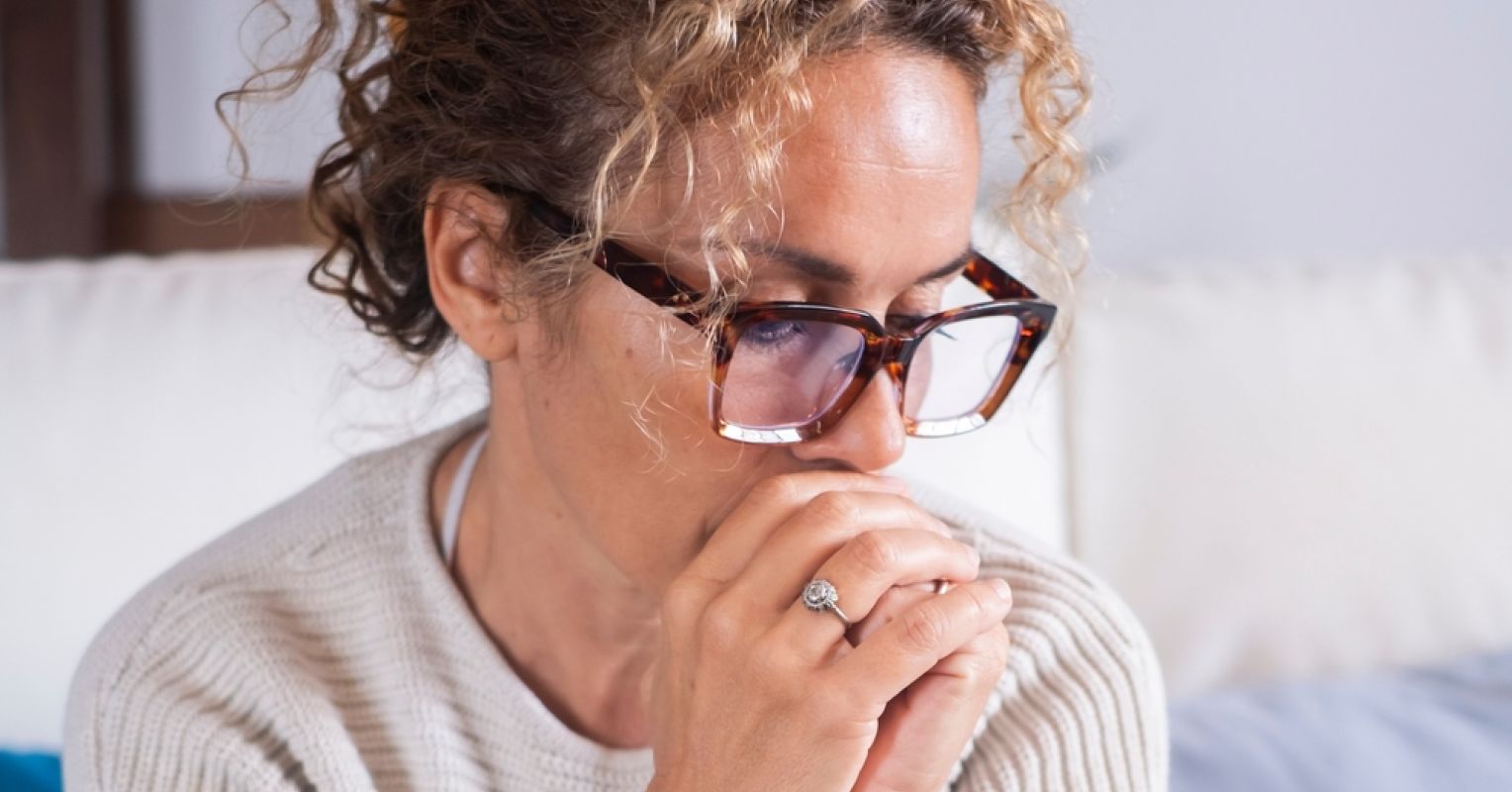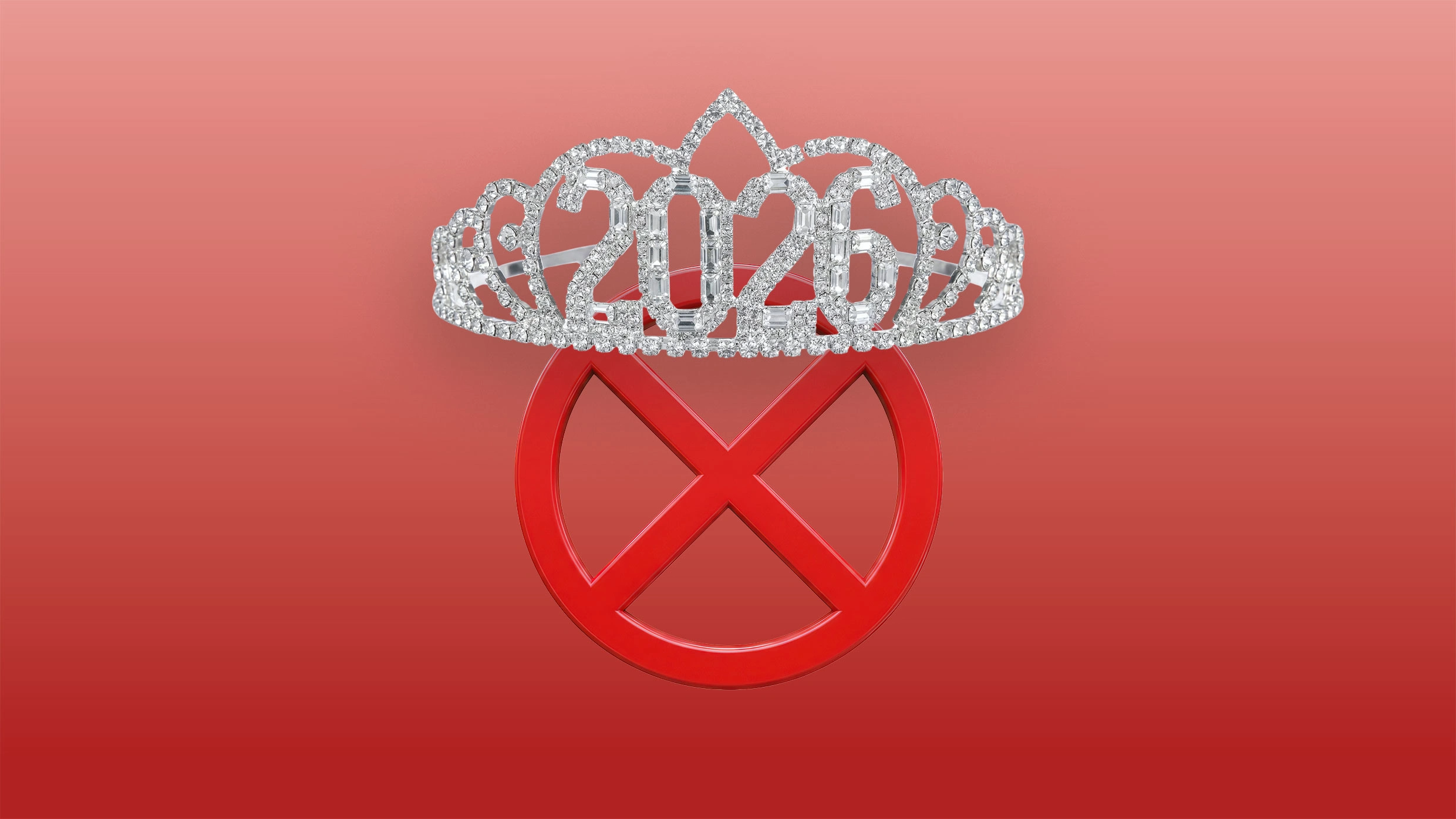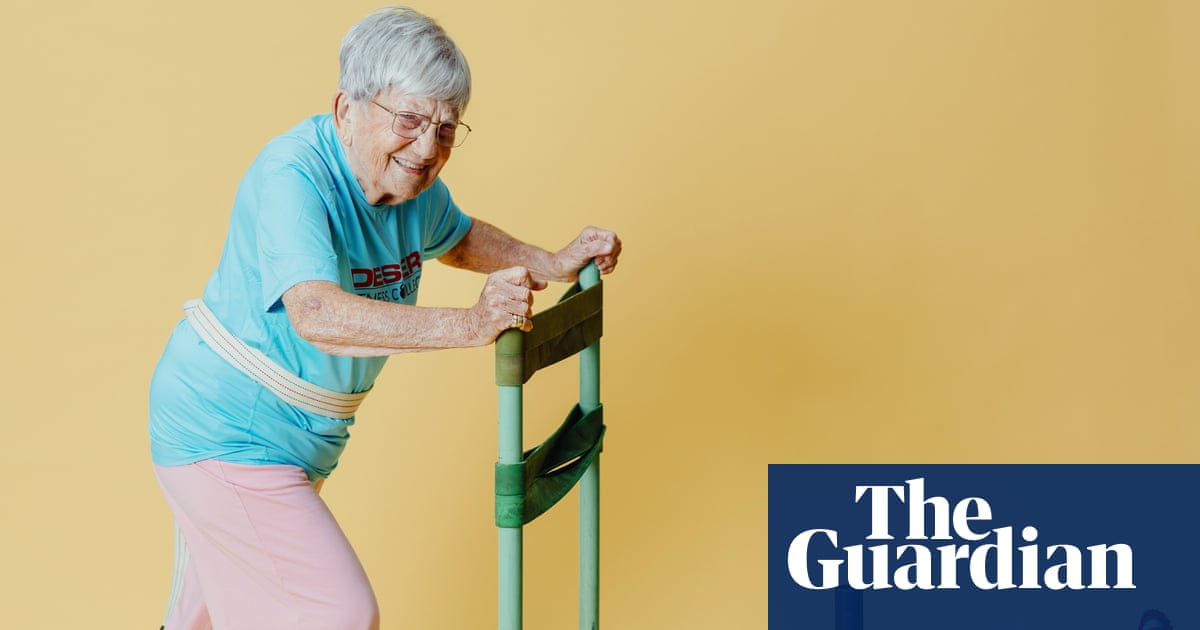#resilience
#resilience
[ follow ]
#parenting #mindfulness #rejection #adaptability #entrepreneurship #empathy #psychology #bayern-munich #aging
fromwww.mercurynews.com
8 hours agoRivals, teammates and those close to ski racer Mikaela Shiffrin quantify her career in a word or two
If you were to read a book on how you should ski, she executes it near flawlessly, two-time Olympic gold medalist Ted Ligety said. Mikaela executes on all the most technical basis like a textbook. For example: She's a rhythmic racer, almost hearing the melodic beat of a song as she weaves through the gates along a slalom course. That almost effortless form helped the 30-year-old American lock up the slalom title on Jan. 25,
Skiing
fromThe Nation
17 hours agoAt the Doorstep of Tomorrow
The war began the week of my 26th birthday. There was a lightness on that day, something born from what remained of our childhood. Sparks like candy, crackling in our mouths: colorful letters; laughter leaking out through voice notes; hearts adorning our text chats; an abundance of cake. But the days that followed are laid out like burnt matchsticks; once the first one was lit, the flames consumed the rest. The war spared nothing on the calendar; I have had no other birthdays since.
World news
Business
fromBusiness Insider
1 day agoI fled Iran and made it to the US when I was 18. I worked my way up from gas station cashier to the CEO of a billion-dollar company.
Shirin Behzadi rose from Iranian immigrant and gas station cashier to CEO of Home Franchise Concepts through resilience, education, and focused leadership.
fromwww.aljazeera.com
2 days agoTrauma does not define us': Living with loss in wartime Ukraine
Anastasiya Buchkouska, a 20-year-old student from western Ukraine, gently brushes away layers of snow and ice from her father's grave. She pauses, looking up at the photograph fixed to the gravestone. His face bears a striking resemblance to hers. When her father was younger, he had served in the military. When Russia launched its full-scale invasion of Ukraine on February 24, 2022, he was called up almost immediately and sent to the front line.
Miscellaneous
fromPsychology Today
4 days agoAdaptation Is Not Submission
Before became the dominant lens through which we interpret human suffering-and before resilience became the preferred word for recovery- adaptation was one of the central concepts used to understand how human beings survive, change, prepare, and continue developing under pressure. In early psychology, psychiatry, ethology, and evolutionary biology, adaptation was not a moral term. It was descriptive, not prescriptive. It referred to the organism's capacity to reorganize itself-biologically, emotionally, cognitively, and socially-in response to changing conditions.
Psychology
fromPsychology Today
5 days agoKeep Your Pen Moving: 6 Science-Backed Benefits of Gratitude
You've just had a crummy day, and you wish you hadn't. Your first instinct is to pick up the phone, call your best friend, and complain. But you also know deep down that you want to be more positive. You know that complaining emphasizes the negative in your life, and you'd like to create a shift for yourself. You recall that you started a gratitude journal, and when you use it, you find you really enjoy noticing the good things more than the bad.
Mental health
fromFast Company
6 days agoWhy inclusion is the new standard for economic growth
In places where inclusion is part of the infrastructure of their economy-supply chains, procurement processes, capital access, or business ownership-people thrive. Inclusive economies create more resilience by expanding the base of potential business owners who can build, own, innovate, and hire. They allow more opportunities for homeownership and investing in the longevity of communities. As our economy becomes increasingly stratified and volatile, we need as much resiliency as we can get.
Social justice
Environment
fromOregon ArtsWatch * Arts & Culture News
1 week agoLasting impressions at Umpqua Valley Arts * Oregon ArtsWatch
Artists examine climate-driven destruction and nature's resilience through archival prints, adaptive imagery and installations, highlighting survival, local ties and the need to adapt.
fromTheregister
6 days agoMicrosoft Azure OpenAI Service goes down in Sweden
Microsoft first acknowledged the issues at 0900 UTC (although the status page for the service stated it spotted the problem at 0922 UTC). At the time, Microsoft blamed the Azure OpenAI Service's availability issues on "an unhealthy backend dependent service, which led to cascading failures." The Windows behemoth noted problems when using modes such as GPT-5.2, GPT-5 Mini, GPT-4.1, and related APIs.
Artificial intelligence
fromTiny Buddha
1 week agoA Simple Practice That's Keeping Me Out of Catastrophic Thinking - Tiny Buddha
As a documentary filmmaker, anticipating the unexpected is part of the job. We learn to obsess over what could go wrong-equipment failures, weather shifts, emotional volatility, permissions falling apart, safety concerns, or a once-in-a-lifetime moment slipping away. We become experts at scanning for danger, preparing for the failure before it arrives. It isn't neurosis-it's craft. It's training. It's how we keep the work alive.
Mindfulness
fromEntrepreneur
1 week agoWhy the Entrepreneurs Who Suffer Early Win Bigger Later
In an era obsessed with shortcuts, overnight success, and polished social media profiles, adversity is often treated as something to avoid. Something unfortunate. Something that signals failure. That assumption is completely wrong. Adversity is not a flaw in the entrepreneurial journey; it is, in fact, the training ground, the pressure that sharpens one's judgment, accelerates their adaptability and forges the kind of resilience no accelerator, MBA or funding round can manufacture.
Venture
fromSilicon Canals
1 week agoPeople who remain genuinely kind despite being hurt repeatedly share these 9 rare strengths - Silicon Canals
You know what's strange? The people who've been hurt the most often end up being the kindest souls you'll ever meet. It doesn't make sense at first. Logic would suggest that repeated betrayals, disappointments, and wounds would harden someone's heart. Build walls, create cynics, and yet (somehow) certain rare individuals manage to stay genuinely warm and compassionate despite everything life throws at them.
Mindfulness
fromMedium
3 years agoFuel Personal Growth by Deliberately Seeking Discomfort
When it comes to building athletic strength and resilience, a well-known phrase captures the process: "no pain, no gain." That rhyming philosophy may apply to mental growth as much as muscle growth, according to research involving one of the world's most famous comedy clubs, Second City in Chicago. Yes, that Second City. In this case, researchers conducted a study with cooperation from Second City improv instructors, who ran classes by giving one of two possible sets of instructions to students.
fromBuzzFeed
1 week agoPeople Are Sharing Parenting Trends They Think Will Seriously Mess Kids Up Later
Every generation of parents believes they are fixing the mistakes of the last. But in trying to eliminate discomfort, boredom, and failure, some modern parenting trends may be creating new problems instead. What feels like protection can quietly turn into control. What feels like support can slide into avoidance. And what feels like kindness can, over time, undermine resilience.
fromMedium
2 weeks agoAgainst cleverness
Today we are at the cusp of revolutions in artificial intelligence, autonomous vehicles, renewable energy, and biotechnology. Each brings extraordinary promise, but each introduces more complexity, more interdependence, and more latent pathways to failure. This elevates prudence to be critical. Good design recognizes what cannot be foreseen. It acknowledges the limits of prediction and control. It builds not merely for performance, but for recovery.
Artificial intelligence
fromBusiness Insider
1 week agoMy career path to Google included bartending and working at a nursing home. Here's what it taught me.
Milica Cvetkovic advanced from bartending and caregiving to a senior technical solutions consultant at Google, crediting discipline, varied life experiences, and resilience.
fromSilicon Canals
1 week agoPsychology says the best sign of a strong mind is still having these 8 traits later in life - Silicon Canals
But here's what I've learned after interviewing over 200 people: The real test of mental strength isn't how brilliant you are in your prime. It's whether you can maintain certain crucial traits as the decades roll by. Think about it. Anyone can be resilient when they have the energy of youth on their side. But can you bounce back from setbacks when you're sixty? Can you stay curious when you've "seen it all"? That's where true mental strength reveals itself.
Psychology
fromTiny Buddha
1 week agoWhy I Stopped Trying to Be Thin and Started Trying to Be Strong - Tiny Buddha
"The resistance that you fight physically in the gym and the resistance that you fight in life can only build a strong character." ~Arnold Schwarzenegger The gym. Just saying the word makes some people break into a sweat-and not the good kind. Bright lights. Mirrors everywhere. What do I wear? That "everyone is staring at me" feeling (spoiler: they're not; they're staring at themselves).
Wellness
fromPsychology Today
2 weeks agoCould Psychedelics Be the Next Solution for a Better Life?
Even as new GLP-1 agonists with brand names like Wegovy and Zepbound make it easier to achieve weight loss, and selective serotonin reuptake inhibitors ( SSRIs) like Prozac and Zoloft provide a hedge against depression, there is growing interest in an old idea: psychedelics. The drugs are not being researched as a diversion from life, but instead as a therapeutic intervention to help us handle life's challenges in more creative ways.
Mental health
fromIndependent
2 weeks agoTanya Sweeney: Gen X parents like to boast about their 'free-range' upbringing - so why do we coddle our own kids?
We Generation X people are made of stern stuff. The latchkey generation; the ones raised on convenience foods that probably bordered on the radioactive; the kids sent out at daybreak and told to return only when the street lights came on.
Psychology
fromPsychology Today
2 weeks agoThe Case of the Broken Banana: Building Kids' Resilience
When you fix the "problem," it teaches kids that you don't think they can handle it. Helping a child be flexible-to adapt when things don't happen as they expect or want-builds resilience. Resilience and flexibility are attributes that ultimately make kids happy. I call this the "taping the pretzel" trap: Your child flips out when something unexpected happens and demands you undo it,
Parenting
fromSempreMilan
2 weeks agoFullkrug jokes with reporter after being asked about toe injury: "There's no mystery!"
There's no mystery, it's a broken toe. You just have to deal with the pain, you just have to deal with the situation. I'm German, so we are strong, we can deal with pain, so you just have to find solutions. We found some good solutions, and I can deal with that so it's good. I don't want to miss a game for AC Milan.
AC Milan
Silicon Valley
fromFortune
2 weeks agoJensen Huang tells Stanford students their high expectations may make it hard for them to succeed: 'I wish upon you ample doses of pain and suffering' | Fortune
Privileged Gen Z graduates should lower expectations to build resilience, because low expectations can foster persistence and improve long-term chances of success.
fromInfoQ
2 weeks agoCloudflare Launches 'Code Orange: Fail Small' Resilience Plan After Multiple Global Outages
Cloudflare recently published a detailed resilience initiative called Code Orange: Fail Small, outlining a comprehensive plan to prevent large-scale service disruptions after two major network outages in the past six weeks. The plan prioritizes controlled rollouts, improved failure-mode handling, and streamlined emergency procedures to make the company's global network more robust and less vulnerable to configuration errors. Cloudflare's network suffered significant outages on November 18 and December 5, 2025, with the first incident disrupting traffic delivery for about two hours and ten minutes
Information security
fromfortune.com
1 year agoNvidia CEO tells privileged students that high expectations will make it hard for them to succeed: I wish you ample doses of pain and suffering'
People with very high expectations have very low resilienceand unfortunately, resilience matters in success, Huang said during an interview with the Stanford Graduate School of Business. One of my great advantages is that I have very low expectations. Indeed, as the billionaire boss pointed out, those at elite institutions like Stanford probably have higher expectations for their future than your average Joe.
Silicon Valley
fromBustle
3 weeks agoHere's Your Horoscope For Tuesday, January 13
A grounding connection forms between the moon in seductive Scorpio and Venus in committed Capricorn, setting a serious tone to your morning. Living up to promises, especially those made with a loved one, is non-negotiable. The moon's eclectic opposition to disruptive Uranus throws a wrench in your afternoon plans. However, Saturn's steady support of the moon is a reminder to stay in control of your emotional reactions, even when the unexpected occurs.
Relationships
fromPsychology Today
3 weeks agoVoices of Generations: How Family Stories Foster Belonging
Throughout many immigrant experiences, stories collected from family members can be a starting point for migrants. The memories gleaned from parents, grandparents, aunts, and uncles-who crossed dozens of borders at great risk and with immense pain-can settle into the consciousness of new host communities for decades. For the migrants, these stories and memories represent the first step into a new world and contain lifelines with the potential and promise to build new, resilient identities and a sense of belonging in often hostile environments.
Relationships
fromPortland Mercury
3 weeks agoBook Review: Mattilda Bernstein Sycamore's Newest Novel Traces Queer Survival From the AIDS Crisis to 2020 Seattle
It is embedded in how I live. Specifically, writing everything that I dream of, and everything that fails me, all of the emotional reality. Often, there are things I'm afraid to say, and then I put them in my writing, and they're said. Then I can say it! I can read it in the book, and people aren't that shocked by it. Often, what people are shocked by has nothing to do with what I'm afraid of.
LGBT
[ Load more ]













